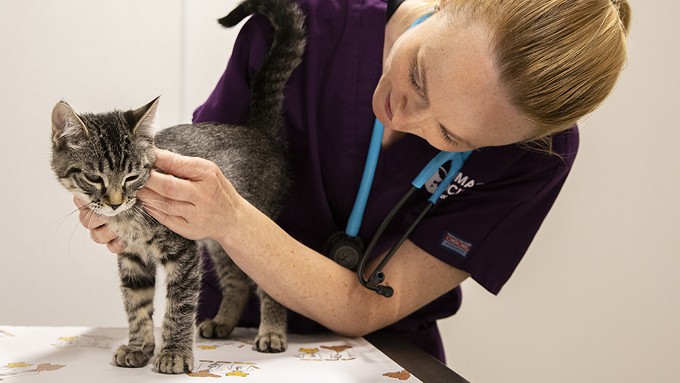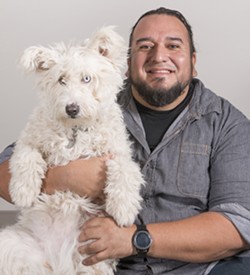
You can’t get your cat in to see the vet. No one answers the phone.
This is not your imagination.
“It’s dire right now. If anyone has tried to get an appointment with their veterinarian, they’ve likely discovered it’s several weeks before you can get in,” Julie Funk, dean of the College of Veterinary Medicine at the University of Arizona, said.
The veterinary crisis preceded COVID-19 but it is hard to deny the pandemic’s effects. The ASPCA reports that around 23 million households adopted a pet during the pandemic.
“The number of animals that people own right now will surpass the number of veterinarians by 2025. That’s alarming,” said Karla Lombana, program director for veterinary technology at Pima Community College. She had a practice in Tucson before joining PCC.
People stayed home and took on pets that may have had health challenges (which most animal-adoption agencies divulge immediately). Pet owners saw previously unnoticed medical problems in pets.

The UA College of Veterinary Medicine will in late August graduate its first class of 105 students with doctor of veterinary medicine degrees. Around the same time 110 students will enter their first semester in the college’s year-round accelerated program in which they attain degrees in three years rather than the usual four.
Pima Community College has a long-established program training veterinary nurses (formerly known as vet techs). It’s one of the most cost-feasible options for anyone wanting to enter the field. Pima Medical Institute also offers courses, but at a far higher cost.
The Humane Society of Southern Arizona helped put in place a state tuition-reimbursement law that aims to encourage people in the veterinary profession to stay here.
The humane society’s CEO, Steve Farley, “felt strongly about having a huge incentive for all vet graduates to stay and practice in Arizona to help fill a lot of these gaps that are currently in place … it has been hard to fill any position after COVID. There have not been a lot of people looking for work,” according to Christian Gonzalez, chief programs officer at the Humane Society.
That is endemic in virtually every industry.
“Between the tight labor market, low unemployment and fewer numbers of individuals in the 16-to-24 demographic as compared to previous generations, employers are facing considerable challenges finding qualified workers,” said Michael Guymon, president and CEO of the Tucson Metro Chamber.
This has had a considerable impact. Also, it’s already difficult caring for animals — many in the industry experience “compassion fatigue:” Dealing with sick pets and their worried owners is wearing.

“The animal welfare field in general, due to its high emotionally driven environment, can make for high turnover in staff,” said Gonzalez of the Humane Society.
Some people, such as Rachel Levinsohn, a veterinary hospital administrator in Tucson, have been at the front for years, yet soldier on. And she has good ideas about how you can help your pets and your vet, probably the most important of which is this: Take your pet for an annual checkup. Sounds simple, doesn’t happen often enough, and can prevent unscheduled visits to your already overwhelmed veterinarian and give them a history of your cat, or dog, or bird, or iguana, so they don’t have to die of an undiagnosed illness such as kidney failure, which can be tracked annually via a simple blood test.
“Establish care with the veterinarian. Create that relationship. That is the easiest way to keep your pet’s health on track,” Levinsohn said. “You would catch something before it’s an issue.”










